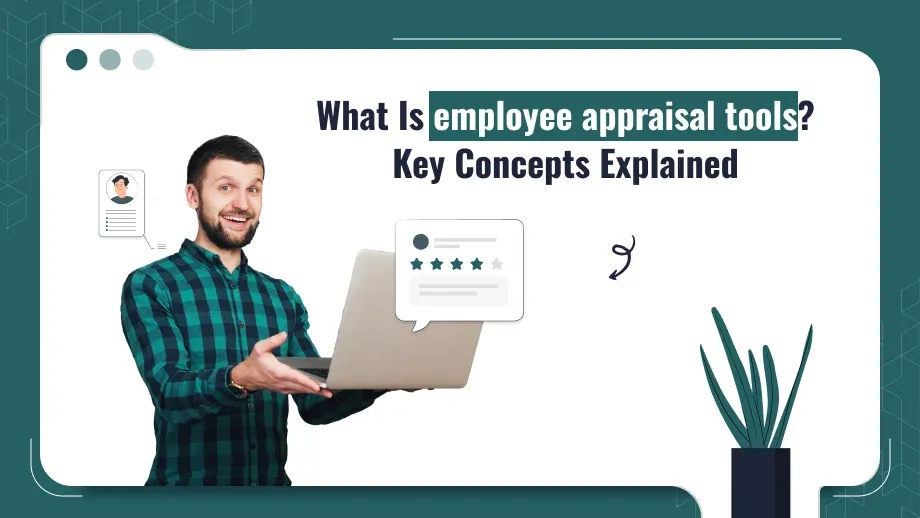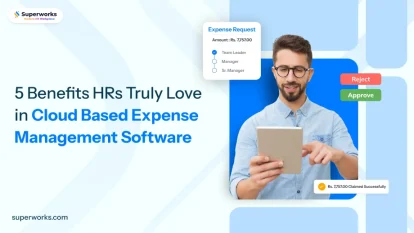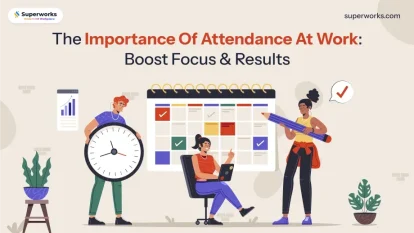
Managing employee performance has never been more important than in today’s fast business world. Perhaps one of the best means to ensure that your team focuses on what matters to your organization is through employee appraisals. Managing this process, though, is often time-consuming, biased, and uneven – until an employee appraisal tools comes in handy to streamline the overall performance evaluation process for you.
This blog will look at why your company needs employee appraisal tools, how they work, and why your company should start using them today.
What is an Employee Appraisal Tool?
An employee appraisal tool is software that helps to automate and simplify the process of evaluating employee performance. Through these tools, HR teams and managers can track the progress of employees, set performance goals, and collect feedback in a structured and unbiased manner. Be it self-assessment, peer review, or manager evaluation, employee appraisal tools centralize all this data into one easy-to-use platform.
This does not include paper-based reviews or subjective evaluation of traditional performance appraisal feedback; it offers a more objective and transparent approach. Being able to gather real-time feedback, set clear performance metrics, and generate detailed reports, these tools not only make appraisals easier to conduct but also make them more effective in boosting employee productivity.
Why Do You Need an Employee Appraisal Tools?
An employee appraisal is one thing that could change the game in your organization. Here are the key reasons why you need one:
Consistency Across the Organization
Another challenge often characterized by traditional employee appraisals is inconsistency. Various departments or managers may have their own ways of evaluating performance, and hence a complete mismatch within the assessments. A good system of appraisal must ensure that all employees are measured through the same standards. Chances of bias and favoritism are, therefore, minimized.
Objective Feedback
One common failing of performance reviews is the inclusion of personal biases, either negative or positive. Employee appraisals, based on facts and figures, provide for fairer and more objective approaches to performance evaluations. It will help increase the employees’ trust in the process and create a culture of openness.
Time Efficiency
Manual appraisals take a lot of time, which is wasted on paperwork and coordination. Employee appraisal tools automate the process, saving much time for HR teams and managers. From tracking performance to generating reports, the tool does repetitive tasks so that you can focus on more strategic activities.
Improved Employee Engagement
Clear, actionable feedback by managers encourages employees to become engaged with their work. This helps keep constant communication open between the managers and the employees, not just saving all feedback for annual reviews. Continuous feedback can improve an employee on the fly; thus, they will always be motivated and aligned with company goals.
Get your employees to perform at their best today!
Discover how Superworks HRMS can streamline welfare management!
Key Features of the Best Employee Appraisal Tools
Not all employee appraisals are created equal. The best tools offer a range of features that help organizations streamline their performance management tool. Here are some of the most essential features to look for:
Customizable Evaluation Forms
A good appraisal system tool will also allow you to customize performance evaluation forms based on the role, department, or objectives. In this way, every employee is evaluated against criteria relevant to their role. The system also helps you customize the appraisal system according to your company values and its performance goals.
Continuous Feedback Mechanism
The best employee appraisal system provides more than just yearly or bi-yearly reviews. With continuous feedback functionality, managers and peers can continuously provide feedback on an employee’s performance. This brings about quicker course corrections and improves employee development in real-time.
Performance Tracking and Analytics
Another notable feature is performance tracking. It tracks the performance of an employee over time, giving insight into their strengths, weaknesses, and areas for growth. These analytics help HR teams and managers identify high-performing employees and those who may need additional support.
Integration with HRMS
The best employee appraisal systems should integrate well with your company’s HRMS and payroll software. In this way, all your employee data from performance to compensation is located in one platform. It also saves time when generating reports for performance reviews and promotions.
How to Choose the Best Employee Appraisal Tools for Your Organization
It is very daunting to decide on the best appraisal software for your organization. However, knowing what to look for makes it a lot easier. Here are some factors to consider:
Scalability
Your business is small today, but you’ll need an employee appraisal tools that can grow with your business. Look for an app that offers flexible options as you grow your employee numbers and performance metrics.
Ease of Use
The tool should be convenient to use for HR managers as well as employees. Complex interfaces may confuse and frustrate people. It should also have a user-friendly interface intuitive for both managers as well as employees.
Integration Capabilities
The employee appraisal tools should integrate with your existing HRMS or payroll software to ensure that performance reviews, promotions, and bonuses are in line with employee compensation as well as benefits.
Customization Options
Every company is unique, and so are the needs for its performance evaluations. A good employee appraisal system should be able to allow you to customize the appraisal process to fit your company’s specific goals, culture, and values.
Benefits of Using Employee Appraisal Tools
When you implement the right employee appraisal tools, the benefits can be significant:
Improved Employee Performance
One of the major benefits of a good appraisal system is that it allows understanding of the areas where employees are exceptionally good and where they lack. With clear performance goals and feedback, employees can improve performance that is in line with objectives, therefore enhancing general performance.
Enhanced Employee Engagement
Employees are more likely to have a sense of engagement when treated with value and support. Tools that give continuous, constructive feedback foster engagement and help in the recognition of their employee’s hard work.
Data-Driven Decision Making
This tool of appraisal will therefore provide employees with invaluable insight into their employee performance goals over time. HR teams and managers will also use the information gathered to make better-informed decisions as to the kind of promotion, training, or other developmental opportunities. The compensation and rewards will also be assessed by the professional in HR in terms of the performance metric.
Better Alignment with Company Goals
Effective performance appraisals are that which is aligned with a company’s goals. Using a tool for employee appraisal you can ensure that there is better alignment of each employee with the objectives in your organization, hence improving its overall business performance.
Best Practices for Implementing an Employee Appraisal Tools
Employee appraisal can come out to be a smooth process if done right. Here are a few best practices:
Involve Employees in the Process
Encourage employees to do self-assessments together with manager evaluations, which will help them work on their performance and give the employees a voice in that process.
Set Clear Objectives
Be clear about the aim of the appraisal process; whether it is to improve your employee’s performance or try to identify training needs in the employees, a purposeful objective ensures that one is on the same level as everyone else.
Provide Regular Feedback
Do not wait for annual appraisals to give feedback. The best employee appraisal tools allow managers to give feedback throughout the year, keeping employees on track and motivated.
Focus on Development
Use the appraisal process as an opportunity to help employees grow. Set clear goals for improvement and provide the necessary resources and support to help them succeed.
Conclusion
Organizations continue to grow and evolve with time. So should the performance evaluation processes. It can make a huge difference in how you assess the performance of your employees, increase engagement, and make team efforts align with the objectives of the business. With the right tools, such as the best HRMS and payroll software in India, it’s going to be fair and transparent, which will eventually yield better results for both employees and the organization.
If you’re ready to take your employee performance evaluations to the next level, it’s time to explore the best employee appraisal systems that fit your company’s needs. Whether you’re a small business or a large enterprise, there’s a good appraisal system integrated with HRMS and payroll software that can help streamline your performance review process and enhance your team’s productivity.






